 How do you get legally married in Italy for a destination wedding?
How do you get legally married in Italy for a destination wedding?
How to plan your legal ceremony in Thailand, Bali, Vietnam or Fiji
A destination wedding isn’t just a holiday with better outfits: it’s a chance to celebrate your love in a place that feels like pure magic. But before you start pinning sunset photos of beach altars and infinity‑pool receptions, there’s one detail that can make or break your overseas “I do”: the legal ceremony.
Every country has its own rules, paperwork, and processes when it comes to recognising a foreign marriage. For Australian couples dreaming of Thailand’s temples, Bali’s cliffside resorts, Vietnam’s lantern‑lit streets, or Fiji’s white‑sand islands, navigating the legalities is the part no one talks about on Instagram. But it absolutely matters.
Here’s everything you need to know to plan a legal ceremony that’s both breathtaking and legally binding.
How to have a legal ceremony in Thailand
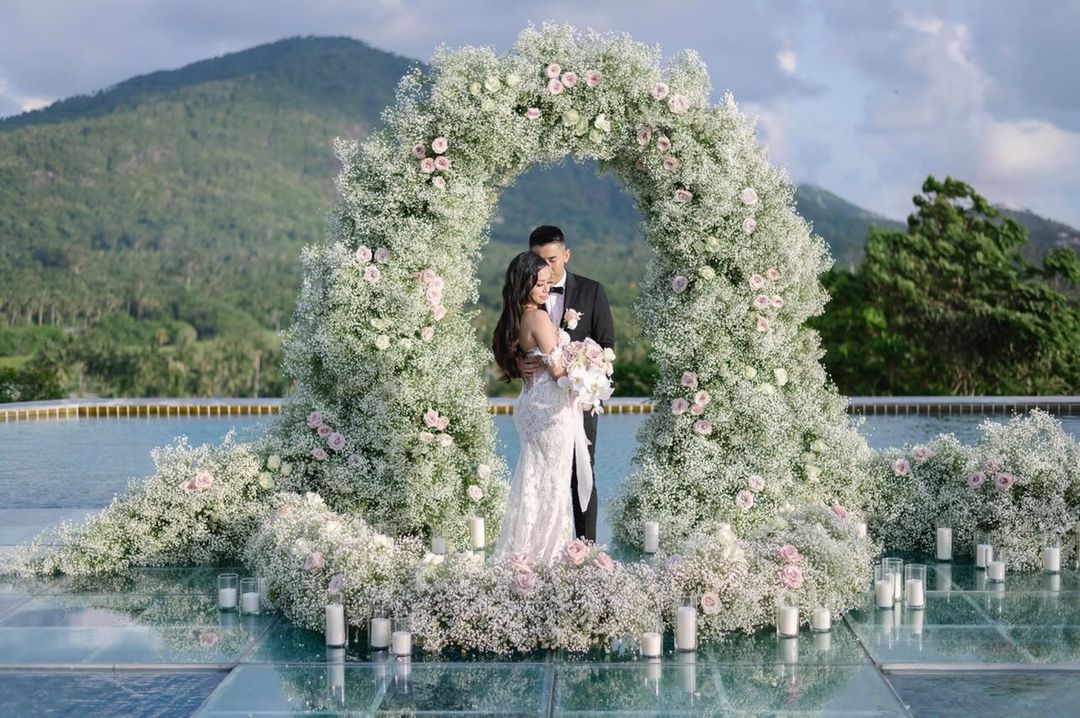
Venue: InterContinental Koh Samui
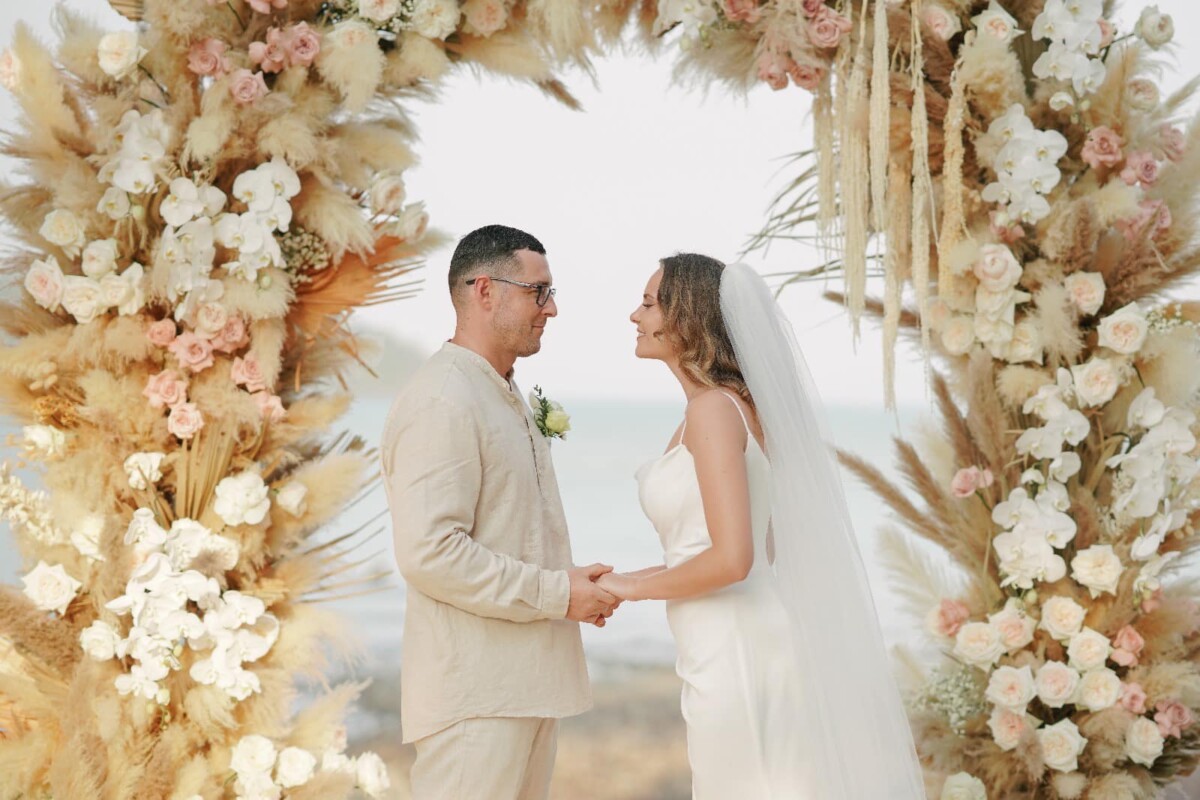
Venue: Island Escape by Burasari
Thailand makes it surprisingly straightforward for foreign couples to marry )provided you’re organised). While the Buddhist water‑pouring ceremonies look incredible on Pinterest, they’re purely symbolic. To make it a legal ceremony in Thailand, you’ll need to register your marriage at a local district office (Amphur/Khet).
The legal checklist
- Book an appointment at the Australian embassy or consulate in Bangkok or Chiang Mai to obtain an Affirmation of Freedom to Marry (essentially confirming you’re free to wed).
- Have this document translated into Thai and legalised at Thailand’s Ministry of Foreign Affairs.
- Once in Thailand, visit a district office with your passport, arrival card, and two witnesses to formally register the marriage.
- After the paperwork is signed, you’ll receive a Thai marriage certificate. A translation and an apostille stamp will make it valid in Australia.
Pro tips for having a legal ceremony in Thailand
- Allow at least a few working days before your wedding to handle embassy appointments and translations.
- Same‑sex marriage becomes legal in Thailand from 2025, making it a standout choice for LGBTQIA+ couples.
- Consider booking a local wedding planner who can fast‑track embassy visits and translation logistics (it’s worth every baht).
How to have a legal ceremony in Bali, Indonesia
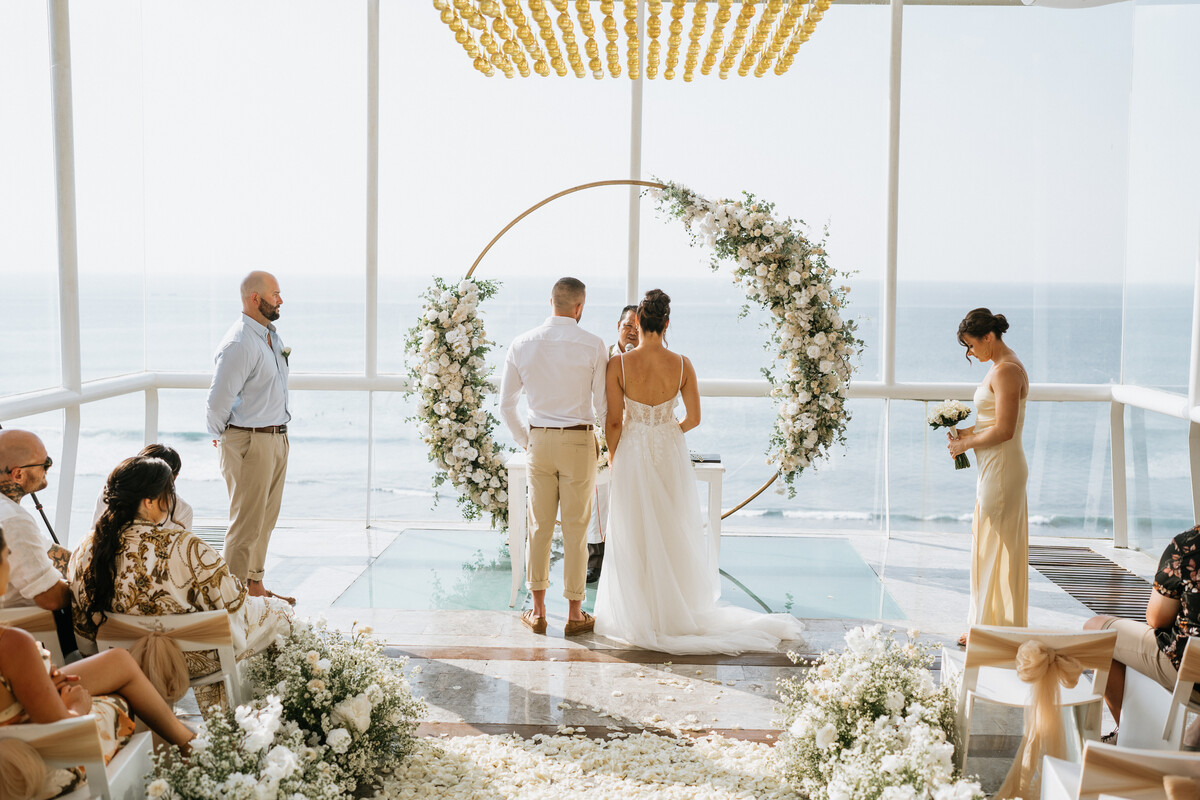
Venue: Anantara Uluwatu Bali Resort
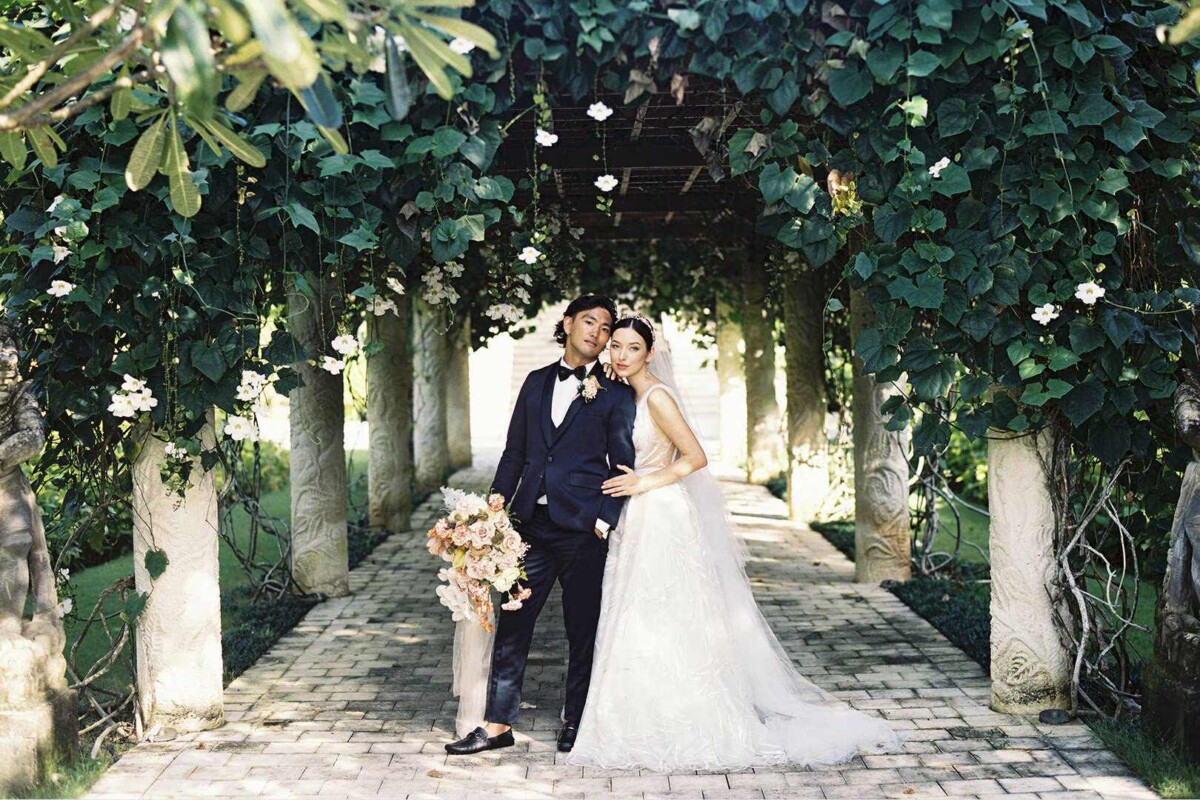
Venue: Jumeirah Bali
Bali weddings are famous for their intricate floral styling, beachfront pavilions, and cliff‑top chapels. But there’s a legal twist: Indonesia requires both partners to declare the same recognised religion. If you’re not religious, you can still have a gorgeous Balinese blessing, but it won’t be legally binding. Here’s how to have a legal ceremony in Indonesia:
The legal checklist
- Obtain an Affidavit of No Impediment to Marry from the Australian embassy (often in Jakarta).
- Prepare passports, birth certificates, divorce/death certificates (if relevant), and passport‑sized photos.
- Your ceremony must be conducted by a recognised religious celebrant, with a civil registry officer present to finalise the marriage certificate.
- After the wedding, you’ll receive an Indonesian marriage certificate that you can translate and apostille for recognition back in Australia.
Pro tips for having a legal ceremony in Indonesia
- The process can take time. Start early and make sure your planner is familiar with the civil registry process.
- Non‑religious couples often choose a symbolic Bali wedding and handle the legal registration back home for simplicity.
- Same‑sex marriage is not legal in Indonesia, so any LGBTQIA+ ceremony here will be symbolic only.
How to have a legal ceremony in Vietnam
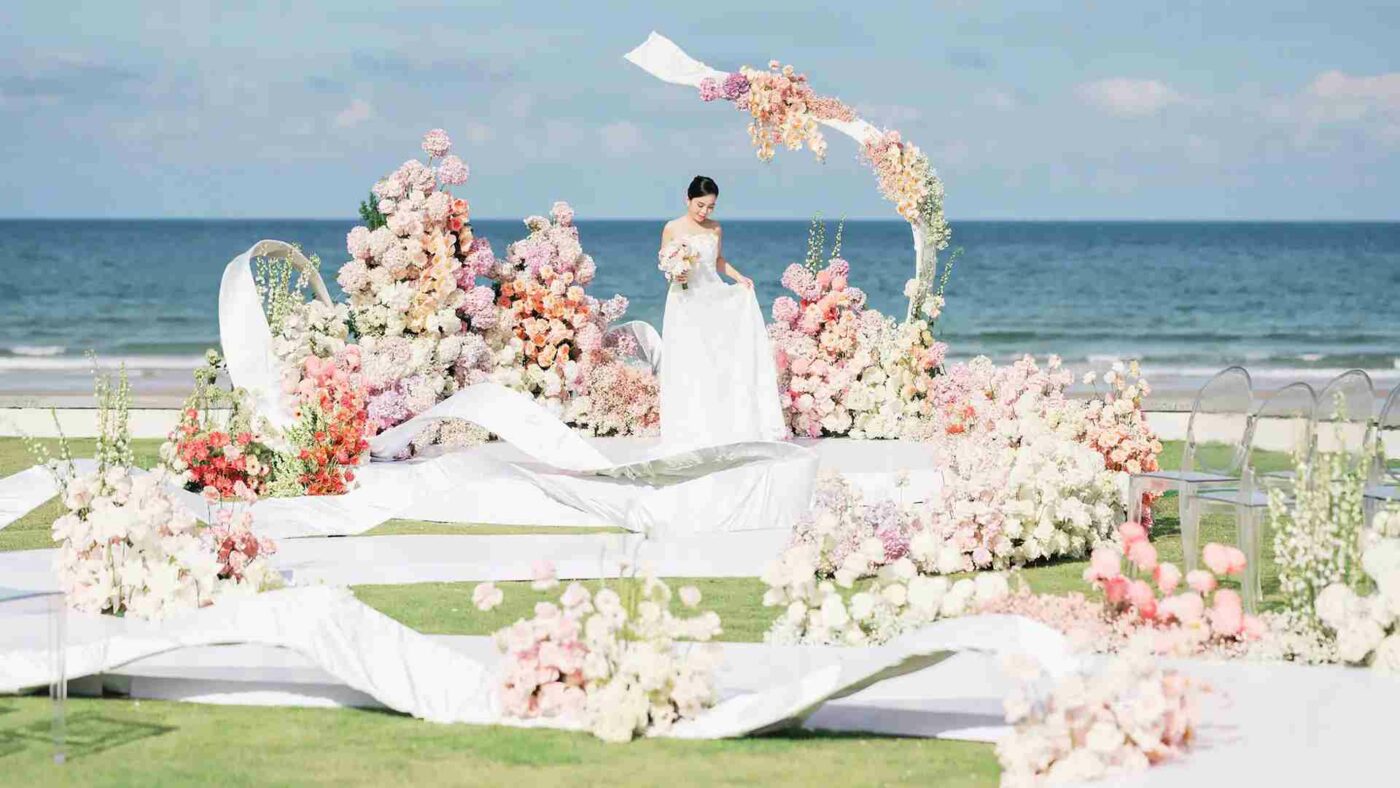
Venue: Hyatt Regency Danang
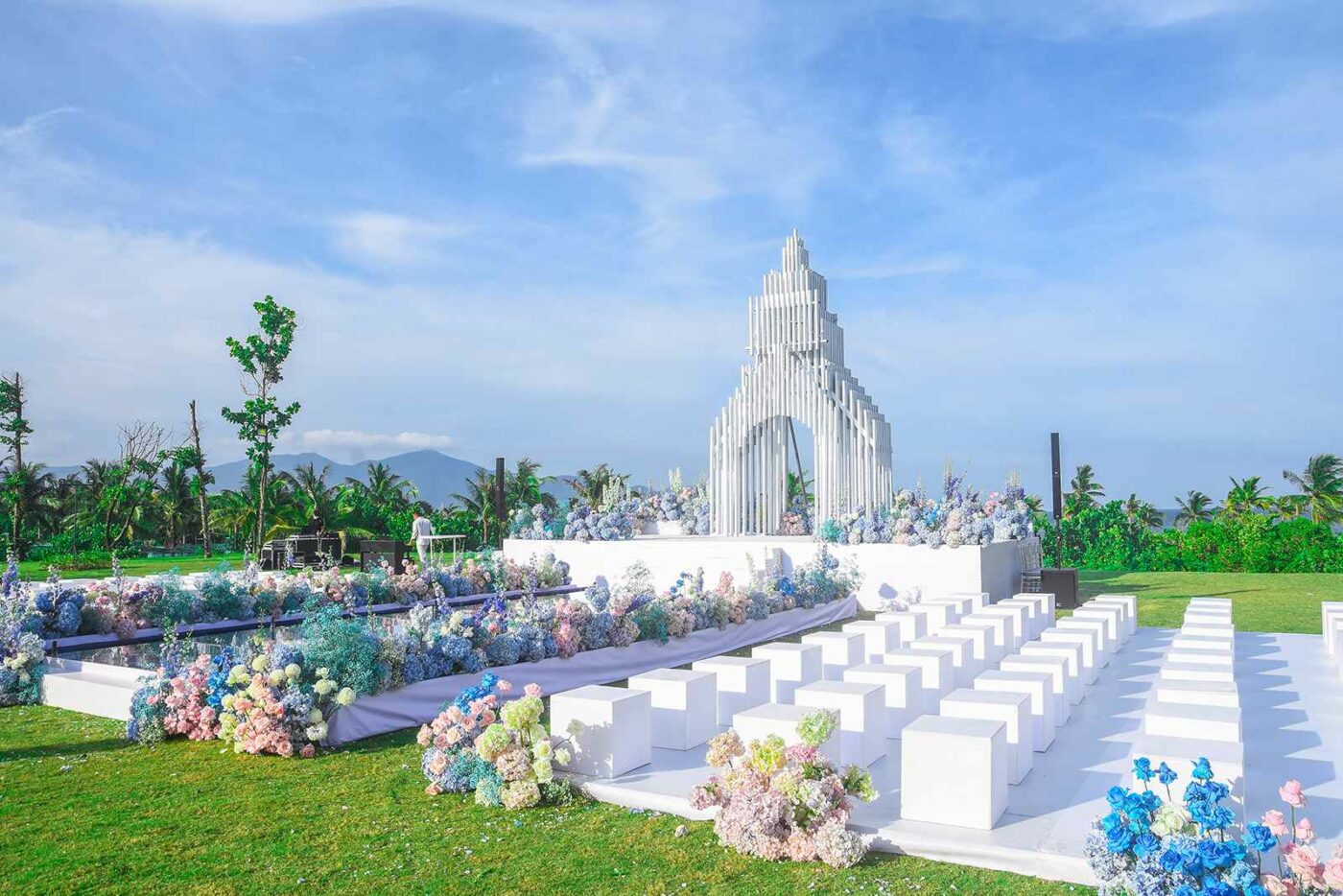
Venue: Ariyana Convention Centre Wedding 20
Vietnam offers incredible backdrops for weddings: lantern‑lit streets in Hội An, French‑colonial architecture in Hanoi, and jaw‑dropping beaches in Da Nang or Phú Quốc. But here’s the catch: getting legally married in Vietnam is far from simple.
The legal checklist
- Apply for a Certificate of No Impediment in Australia before you travel.
- Prepare your birth certificates, passports, divorce/death certificates (if applicable), and have everything translated into Vietnamese.
- Submit an application to the district People’s Committee where you plan to marry. Both partners must usually attend an interview to confirm the legitimacy of the relationship.
- If approved, your marriage certificate is issued, but expect long processing times, and sometimes additional local requirements.
Pro tips for having a legal ceremony in Vietnam
- Most couples choose a ceremonial wedding in Vietnam and complete their legal marriage in Australia for simplicity.
- If you want to go through the legal process in Vietnam, work with a local lawyer or planner—the paperwork is intense, and translations must be exact.
- Same‑sex marriage is not recognised under Vietnamese law.
How to have a legal ceremony in Fiji

Venue: Castaway Island Fiji Resort
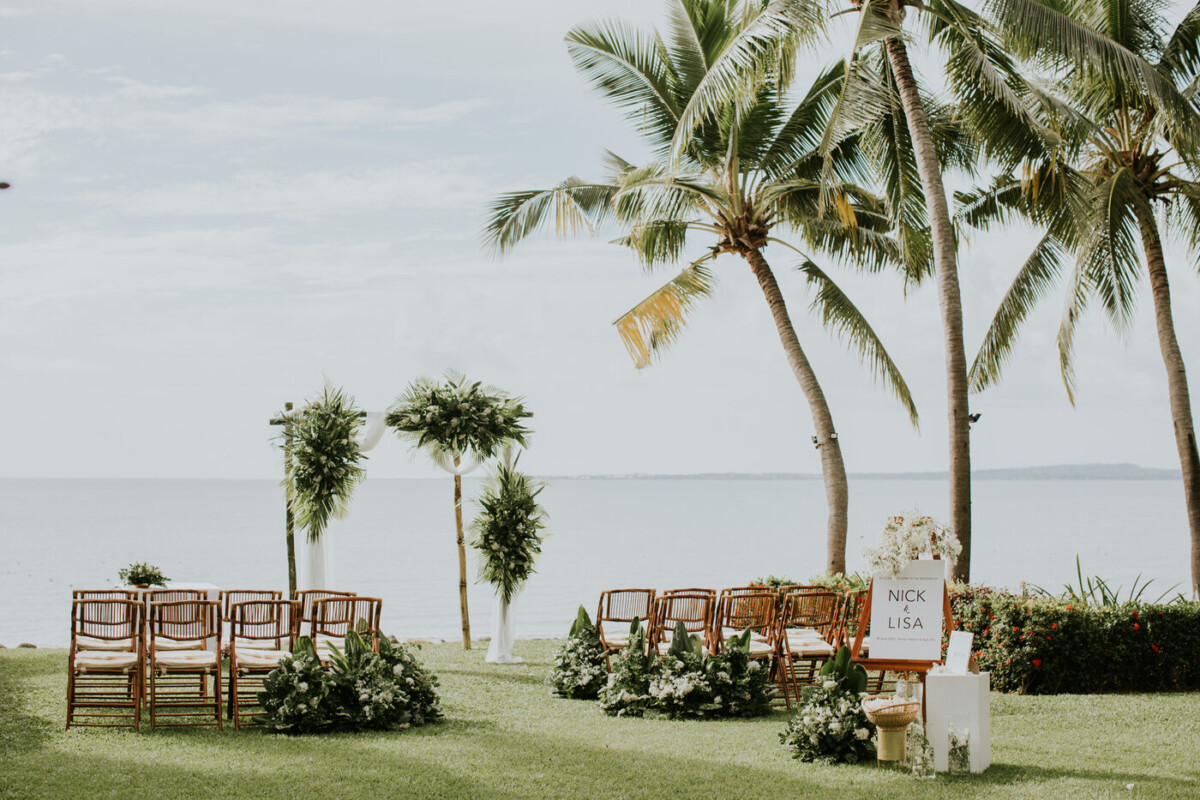
Venue: Sofitel Fiji Denaru Island
Of the four countries, Fiji is arguably the most straightforward for Australians to marry legally. With English as an official language and a clear process for foreign marriages, it’s a favourite for couples who want their big day to double as a tropical escape. Here’s how to have a legal ceremony in Fiji:
The legal checklist
- Obtain a Certificate of No Impediment in Australia.
- Send your paperwork (passports, birth certificates, divorce/death certificates if applicable) to the Fijian Registrar at least four weeks before the wedding.
- Once in Fiji, attend the registry office in person to sign the necessary documents before your ceremony.
- The registrar or an authorised marriage officer can perform the legal wedding anywhere: beach, resort, or even on a yacht.
Pro tips for having a legal ceremony in Fiji
- Fiji does not recognise same‑sex marriage, so LGBTQIA+ couples can only hold symbolic ceremonies here.
- Legal marriages in Fiji are recognised in Australia without further registration—just keep your original certificate safe.
- Many couples choose to work with a planner who can coordinate directly with the resort to handle the paperwork. Easy Weddings can connect you with trusted professionals who make the legal side feel effortless.
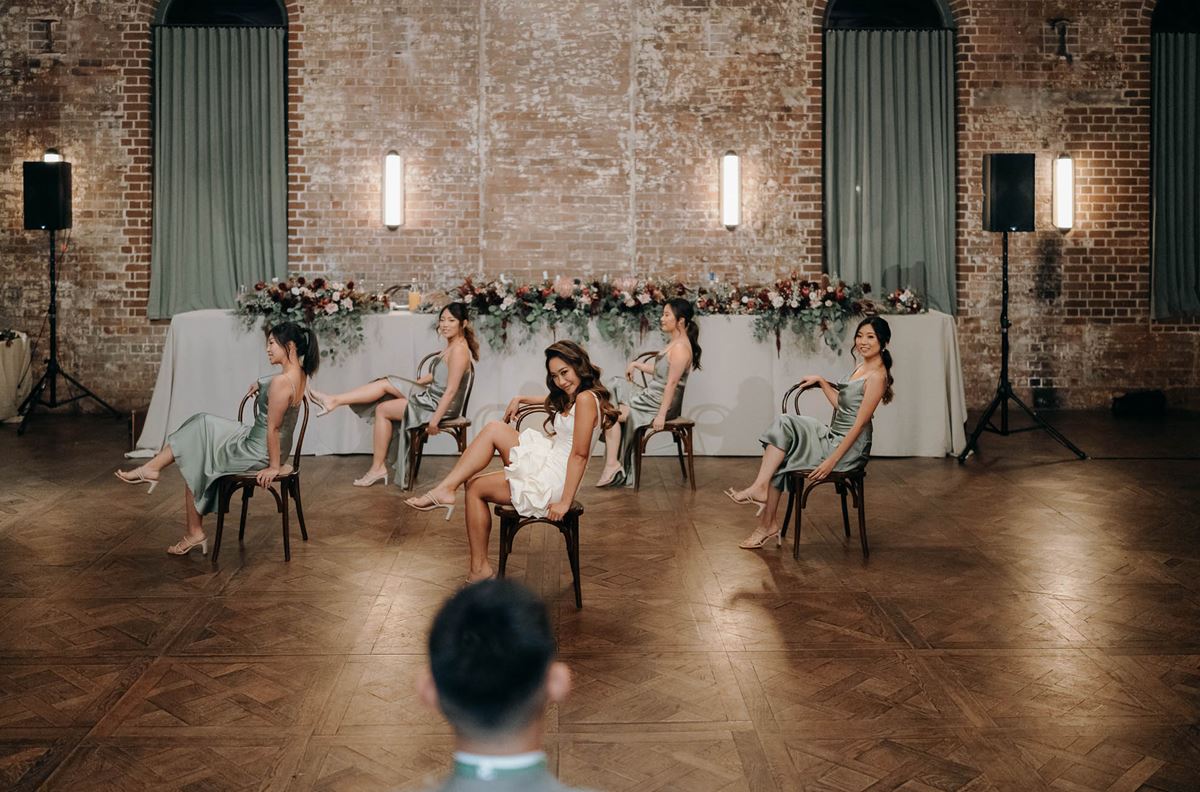
Credit: Lightheart Wedding
So, should you marry legally overseas, or at home?
If you want a simple, stress‑free process, consider doing the paperwork in Australia first and treating your overseas wedding as the celebration. This gives you full creative freedom without embassy visits or bureaucratic headaches.
But if you love the idea of saying “I do” in a way that’s officially binding in paradise, start early, gather every document you can think of, and work with a trusted planner (like yours truly!) who knows the local laws.
Plan your destination weddings with Easy Weddings
Whether you’re exchanging vows in a Thai district office before your beach party, signing papers in a Balinese chapel, navigating Vietnam’s bureaucracy, or going full‑tropical in Fiji, the key is preparation.
Start early, stay organised, and make it chic. Your love story deserves both a dreamy celebration and a valid marriage certificate.
Plan your destination wedding with Easy Weddings, your go‑to team for connecting with trusted planners, celebrants, and venues across Thailand, Bali, Vietnam and Fiji.
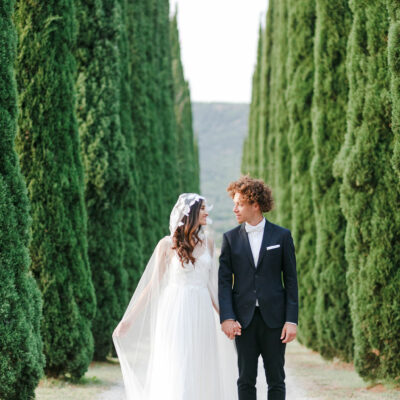 What part of Italy is best for a destination wedding?
What part of Italy is best for a destination wedding? 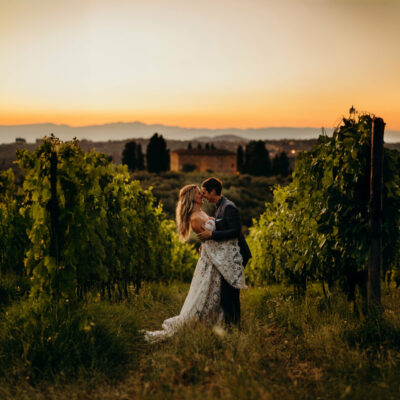 What’s the best time of year for an Italy wedding?
What’s the best time of year for an Italy wedding?